Overclocking
As the first motherboard to go through our test suite, the Aorus Master was very much a guinea pig, but we managed 4.3GHz using our usual vcore of 1.425V - the same result as the Asus ROG Crosshair VIII Hero. We should add that this is our limit voltage-wise, and if you want to try the same settings, you should always try to dial it back from here. The MSI Prestige X570 Creation did manage to squeeze out an extra 50MHz for the same voltage.
Performance Analysis
The Aorus Master sat in the middle of most of our performance benchmarks, offering decent single-threaded and multi-threaded performance, with nothing to indicate any BIOS gremlins that were most evident with the Asus board and its low single-threaded Cinebench score. There weren't any stand-out results here, though, except for a graph-topping result in Time Spy, and the audio results were quite average despite Gigabyte's audio boasting - the MSI Prestige X570 Creation was better across the board.
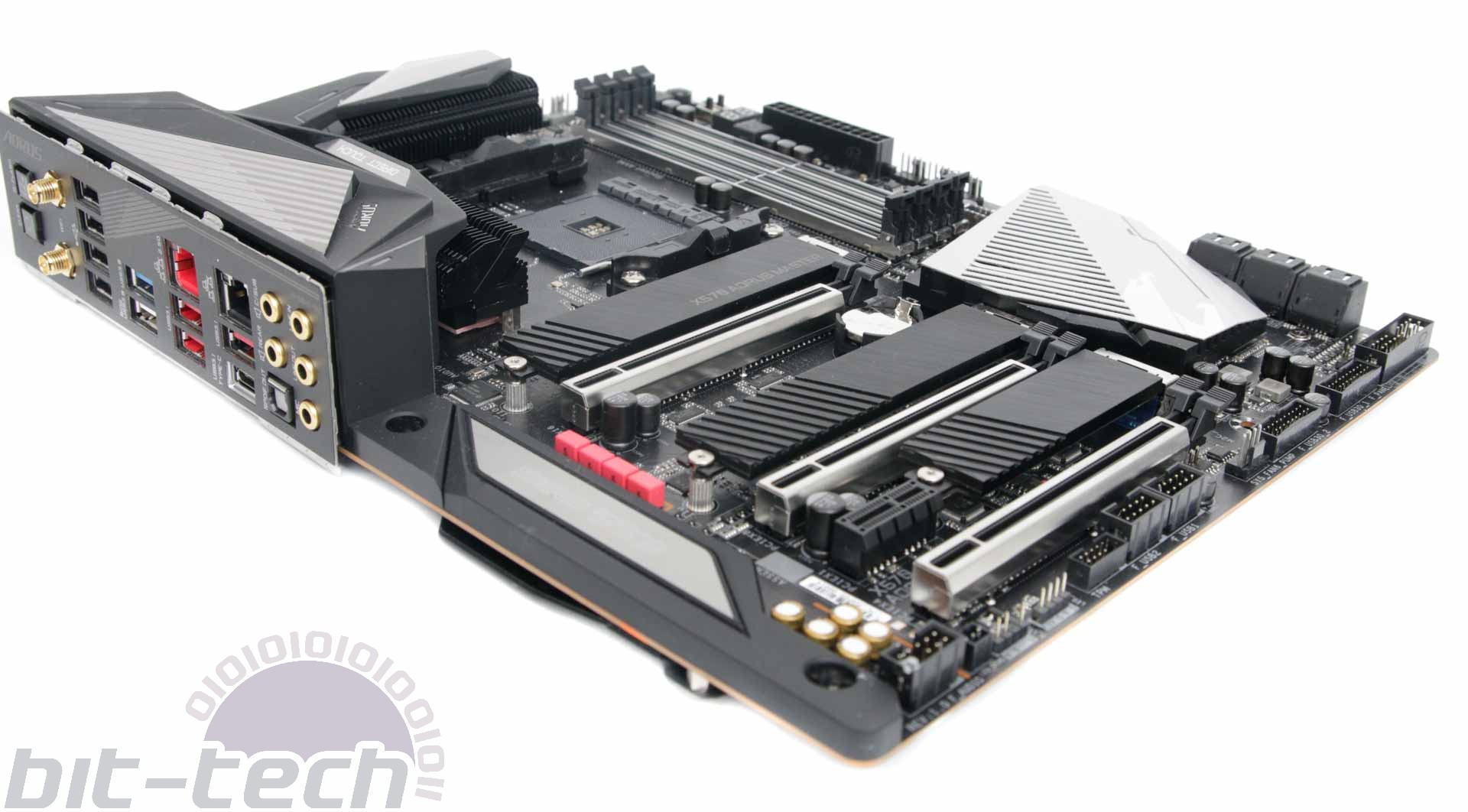
Despite our speedy Aorus PCIe 4.0 SSD's heatsink removed and being cooled by the board's own M.2 heatsinks, we still saw speeds that you'd expect from this monster SSD of nearly 5,000MB/s read speed and 4,270MB/s write speed. Meanwhile, the chipset-powered USB 3.1 Gen 2 ports dished out 935MB/s and 922MB/s read and write speeds using our external PCIe NVMe chassis and Samsung 960 Evo.
We can see why Gigabyte was keen to use this BIOS for performance testing, as it seems to perform well in power consumption too, with the board idling and loading at competitive power draws at stock speed and offering the lowest draw under load once overclocked, although it's worth remembering that the MSI board was boasting an extra 50MHz core speed here.
Conclusion
The Gigabyte X570 Aorus Master is an expensive bit of kit at £390, but it does come in below the £450 MSI Prestige X570 Creation and £600 Asus ROG Crosshair VIII Formula that we've reviewed so far. It handled our 12-core Ryzen 9 3900X with ease, has a ton of useful features, and offered solid performance across our spectrum of tests.
Our impression of the board has improved massively since our initial 3rd Gen Ryzen testing thanks to Gigabyte's new BIOS, which solves the chipset fan noise problem, but it's worth noting that the T5h BIOS used to fix the fan does have performance issues. As such, if both those issues are fixed in a single BIOS revision, we feel the board will be deserving of an award, but for now, we only have Gigabyte's word that a BIOS revision will match good performance with lower chipset fan noise. When and only when that BIOS is available will the board be properly competitive and without major flaws (assuming the promises stand up to scrutiny), so we'll report back our findings and potentially dish out an award accordingly when that time comes.
[EDIT] Gigabyte has released BIOS version F5g which showed no performance drops and also introduced multiple chipset fan profiles so we have no qualms in dishing out our recommended award.


MSI MPG Velox 100R Chassis Review
October 14 2021 | 15:04

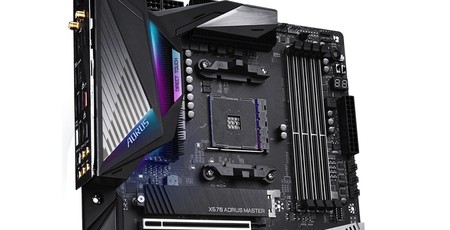
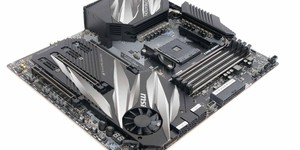
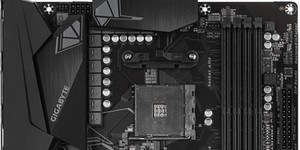
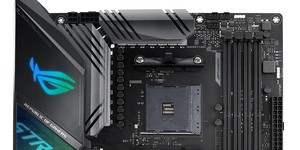




Want to comment? Please log in.